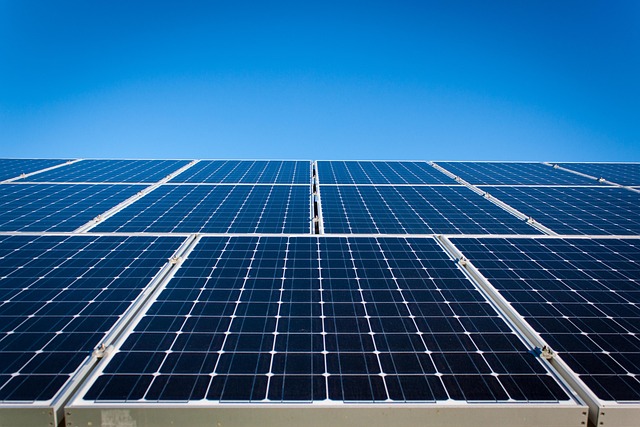Commercial rooftop solar systems offer retail businesses a powerful way to cut energy costs and boost sustainability. Beyond immediate savings, they provide energy independence and enhance brand reputation—key advantages as electricity prices rise and consumers demand greener practices. Understanding costs, installation, and returns helps retailers make informed decisions that balance upfront investment with long-term financial and environmental benefits.
Overview of Commercial Rooftop Solar Systems for Retail
Solar Panels for Retail Parks are increasingly crucial in meeting retail sector demands for sustainable energy. These systems turn unused roof space into productive energy sources, delivering cost savings, boosting energy independence, and lowering carbon footprints.
This might interest you : Find your perfect Clapham hairdressers for a fresh style
Different system types include grid-tied and hybrid solutions, each with unique installation processes and regulatory demands. Installing these systems typically involves thorough site assessment, permitting, and adherence to local building codes, especially for larger retail facilities or historical sites.
Recent insights reveal that commercial solar panels, like those offered by Geo Green Power, perform reliably with warranties of 25+ years. The high ROI—often 16–45%—ensures that investments pay off swiftly, typically within five years. Ongoing maintenance is minimal, and the systems can be scaled, helping retail parks reduce operational costs while demonstrating ecological responsibility.
Also to read : What Should UK Companies Know About Business Services Development?
For retail chains looking to maximize benefits, exploring financing options, such as leasing or grants, alongside professional planning, enhances feasibility.
Understanding Commercial Solar Power Solutions for Retail Businesses
Types of Commercial Solar Systems Suitable for Retail Settings
Retail businesses often look to commercial solar panel installation as a practical route to reducing operational costs and enhancing environmental credentials. The most widely used solution is rooftop photovoltaic solutions, which transform unused roof space into sources of clean energy. When considering a solar system, the design phase should evaluate the difference between grid-tied and off-grid systems. Grid-tied installations enable seamless integration with the utility grid, allowing retailers to benefit from net metering benefits and backup options, while off-grid systems may suit remote retail properties seeking total independence.
A critical aspect of solar installation process for commercial buildings involves rooftop structural assessment for solar. To maximize output, rooftop space must be evaluated for sun exposure, shading, and load-bearing capacity. Solar panel types for commercial buildings are also chosen based on efficiency and roof compatibility, ensuring optimal performance.
Retailers further address commercial-scale solar projects by considering system scalability for future energy growth. Robust project planning, regular solar panel maintenance for businesses, and strategic system design help sustain long-term solar energy production—integral for large-scale retail operations seeking effective energy cost reduction strategies.
Choosing and Implementing the Right Solar System for Your Retail Business
Cost Factors and Financing Options for Retail Solar Projects
Commercial solar system costs vary significantly depending on system size, with factors such as panels, inverters, mounting equipment, and electrical connections making up the bulk of expenses. For example, typical commercial solar panel installation expenses in the UK range from £16,000 to £60,000 for small- to medium-scale rooftop photovoltaic solutions—most relevant for retail businesses aiming for robust energy cost reduction strategies. Larger commercial-scale solar projects enjoy economies of scale, reducing per-watt installation prices and improving solar power ROI for companies.
Financing options remain accessible: solar leasing programs for businesses, loans, and Power Purchase Agreements enable flexible investment pathways. With no current grants for solar panels on commercial buildings UK wide, business owners can take advantage of a 5% VAT rate and solar tax incentives for businesses to further decrease commercial solar system costs. Exploring solar system financing options, including local solar incentives, accelerates payback and maximizes solar power cost savings.
Installation Process, Challenges, and Solutions
The solar installation process for commercial buildings begins with a comprehensive site assessment, focusing particularly on rooftop structural assessment for solar and relevant regulatory requirements such as solar panels on commercial buildings planning permission. Retailers may encounter rooftop installation challenges, including limited usable area or shading. Careful commercial solar system design and experienced installers help overcome these hurdles, often adjusting commercial solar panel installation techniques to optimize rooftop photovoltaic solutions for retail stores and warehouses.
Maintenance, Monitoring, and System Longevity
Ongoing solar panel maintenance for businesses is manageable, typically costing £100–£200 annually, supported by commercial solar system monitoring software for troubleshooting and diagnostics. Integrating solar power for warehouses or retail parks with monitoring systems ensures early detection of issues, enabling prompt system upgrades when needed. Warranties on commercial solar equipment lifespan—such as 25 years for panels—reinforce reliability, while periodic cleaning and maintenance uphold system longevity and continuous solar power cost savings.
Energy management systems now make tracking solar system performance and maximizing solar energy for business operations straightforward, supporting sustainable business practices while boosting the impact of solar power ROI for companies.
Key Benefits and Implementation of Commercial Rooftop Photovoltaic Solutions
For companies considering commercial solar panel installation, the immediate advantages include significant solar power cost savings and a noticeable improvement in energy efficiency for offices and industrial premises. With electricity bills representing a major business expense, installing commercial solar panel systems provides a direct solution to reducing operational costs. Systems ranging from 2 kW to 5 kW can save businesses thousands annually, especially for those operating predominantly during daylight hours.
Beyond direct savings, these systems enable business energy independence and protect companies from volatile energy markets. When integrating solar with business operations, the flexibility of rooftop photovoltaic solutions means even complex building footprints can be served, enhancing both sustainability and energy management.
Planning a commercial solar panel installation also involves attention to regulatory details. Business owners must consider solar energy regulations for commercial properties and often need planning permission—particularly for buildings with specific rooftop installation challenges. Engaging qualified installers helps ensure compliance and smooth processing of solar system permits and approvals.
Ensuring ongoing performance, solar panel maintenance for businesses is straightforward, with annual costs relatively low, especially if advanced monitoring systems are used. Overall, commercial rooftop photovoltaic solutions provide lasting financial and environmental benefits, solidifying their place in the clean energy transition for companies.











